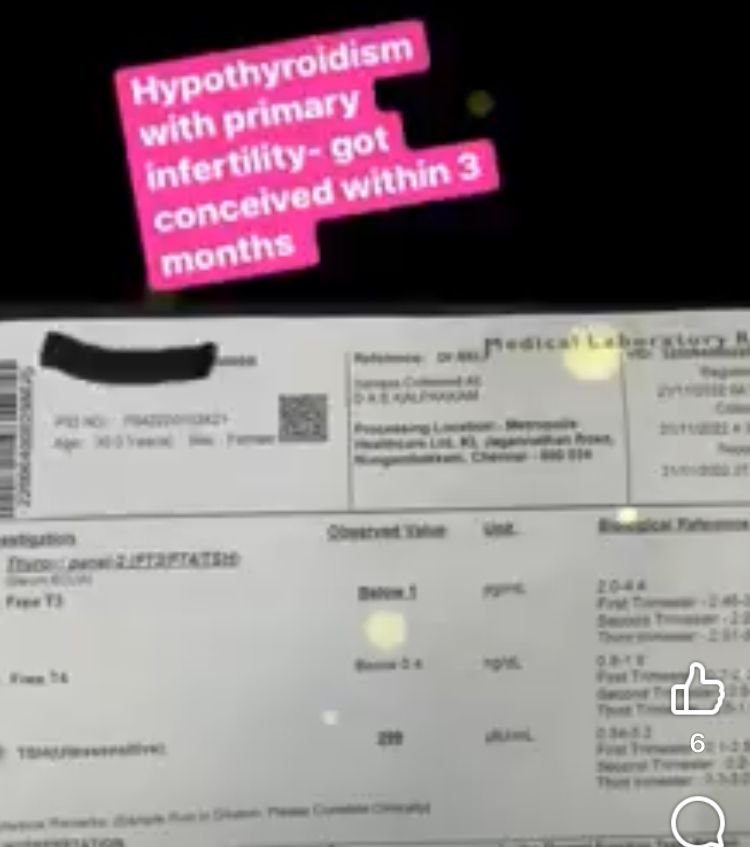Empowering Journey: From Childless to Motherhood - A Success Story
Understanding Infertility
Infertility is a complex medical condition that affects individuals and couples worldwide. It occurs when there are difficulties in conceiving a child despite regular, unprotected intercourse for at least 12 months. This condition can be emotionally challenging, but advancements in medical science offer hope and solutions to many struggling with infertility.
Causes of Infertility
In Males:
Infertility in males can stem from various factors, including:
- Semen and Sperm Problems: Issues such as low sperm count (oligospermia), poor sperm motility, or abnormal sperm morphology can hinder fertilization.
- Medical Conditions: Certain medical conditions like testicular infections, testicular cancer, or previous surgeries may impact sperm production or delivery.
- Overheated Testicles: Environmental factors like prolonged exposure to heat (e.g., saunas, hot tubs, tight clothing) can affect sperm quality and production.
- Ejaculation Disorders: Blockages in the ejaculatory ducts or retrograde ejaculation (semen entering the bladder instead of exiting through the penis) can hinder sperm transport.
- Hormonal Imbalance: Conditions like hypogonadism or imbalances in testosterone levels can contribute to infertility.
- Genetic Factors: Conditions such as Klinefelter syndrome, where males have an extra X chromosome, can affect testicular development and sperm production.
- Other Causes: Mumps after puberty, hypospadias (a congenital condition affecting the urethral opening), cystic fibrosis, radiation therapy, chemotherapy, and certain medications can also impact male fertility.
In Females:
Infertility in females can be attributed to various factors, including:
- Ovulation Disorders: Conditions like polycystic ovary syndrome (PCOS), thyroid disorders, hyperprolactinemia, or irregular menstruation can affect ovulation and egg release.
- Uterine or Fallopian Tube Issues: Structural abnormalities, scarring from previous surgeries, or conditions like endometriosis can hinder egg fertilization or implantation.
- Chronic Conditions: Diseases like AIDS or cancer, primary ovarian insufficiency (early menopause), or poor egg quality due to aging can contribute to infertility.
- Surgical Procedures: Previous pelvic surgeries or tubal ligation can impact fertility.
- Other Factors: Submucosal fibroids, endometriosis, poor cervical mucus quality, and autoimmune disorders can also play a role in female infertility.
Risk Factors
Several risk factors can increase the likelihood of infertility:
- Lifestyle Choices: Smoking, excessive alcohol consumption, drug abuse (including narcotics like cannabis or cocaine), and exposure to environmental toxins (e.g., pesticides, lead) can affect fertility.
- Medical Treatments: Chemotherapy, radiation therapy (especially near the reproductive organs), and certain medications can impair fertility.
- Sexually Transmitted Infections (STIs): Infections like chlamydia can cause inflammation and damage to reproductive organs.
- Age: Both male and female fertility decline with age, with females experiencing a more pronounced decrease in fertility after 35 years.
- Nutrition and Weight: Obesity or extreme weight loss due to eating disorders can impact fertility.
- Stress and Mental Health: Chronic stress, anxiety, and depression can affect hormonal balance and fertility.
- Exercise: Excessive or inadequate physical activity can influence reproductive hormones and sperm quality.
By understanding these detailed causes and risk factors, individuals and couples can make informed decisions and seek appropriate medical interventions to address infertility challenges effectively.
In this case study, we explore how a 28-year-old female with infertility problem found relief through homoeopathic intervention.
Patient Presentation
The patient, a 28-year-old female, approached me with a strong belief in Homoeopathy's ability to help her conceive. Despite her history of hypothyroidism, with TSH levels considered highly inhibitory to pregnancy, her faith in holistic healing was unwavering. Her emotional turmoil, rooted in familial struggles and personal fears, added layers to her medical case that required delicate exploration.
Symptomatology and Mental State
Upon in-depth history taking, several key aspects of the patient's personality and mental state emerged:
- Extreme introversion, living within mental boundaries with minimal desire or interest in external interactions.
- Compulsive habit of repeatedly checking belongings, reflecting deep-seated mistrust even towards family members
- Frugality bordering on miserliness, keeping old belongings for extended periods and exhibiting self-centered tendencies.
- Aversion towards animals, preferring solitude and silence at home.
- Sensitivity to noise, light, and rudeness, often brooding on past bitter events and hesitant to express personal views.
Homoeopathic Approach
The patient's case presented a complex interplay of physical health, emotional distress, and personality traits. Homoeopathy, with its holistic focus on treating the individual as a whole, provided a nuanced approach to address her needs. The challenge lay in uncovering the root cause behind her emotional barriers and physical health challenges.
Treatment Journey
The initial phase of treatment involved establishing trust and rapport with the patient, understanding her unique perspectives, fears, and aspirations. Through careful observation and analysis, a well-suited homoeopathic remedy was selected, tailored to address not just her hypothyroidism but also her emotional and psychological well-being.
Outcome and Transformation
Within a remarkably short period of 2 months, the patient's belief in Homoeopathy bore fruit as she achieved pregnancy against daunting odds. More than just a physical transformation, her journey reflected a profound shift in self-perception and emotional healing. By addressing deep-seated fears, mistrust, and emotional barriers, she not only embraced the possibility of motherhood but also rediscovered a sense of inner peace and resilience.


Conclusion
This case study underscores the holistic nature of Homoeopathy in addressing complex health challenges, including infertility intertwined with emotional and psychological factors. Through a personalized approach focused on the individual's unique constitution and mental state, Homoeopathy can offer transformative outcomes, empowering patients on their journey towards health and well-being.
Remember, while this case illustrates a successful outcome, individual responses to treatment may vary. Consultation with a qualified homoeopath is essential for personalized assessment and treatment recommendations.
Stay tuned for more inspiring stories and insights into the world of holistic healing. Together, let's explore the magic of homoeopathy and its potential to transform lives.

Add new comment